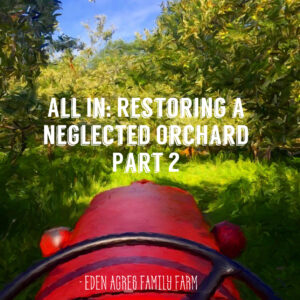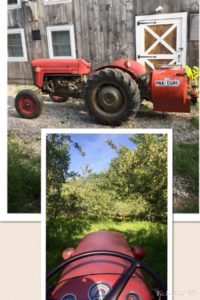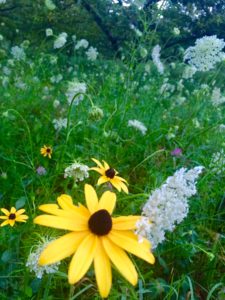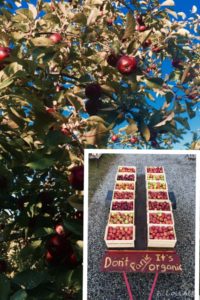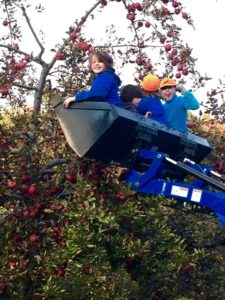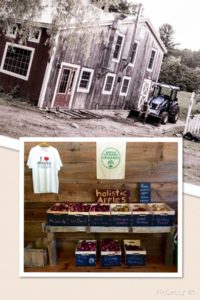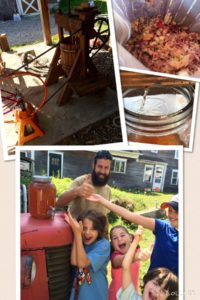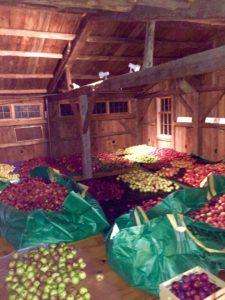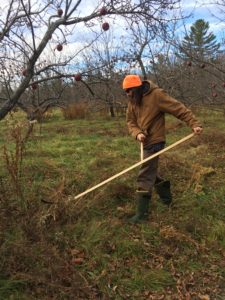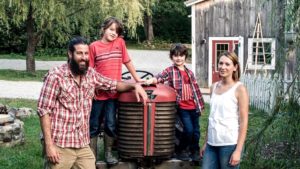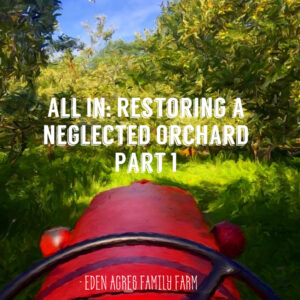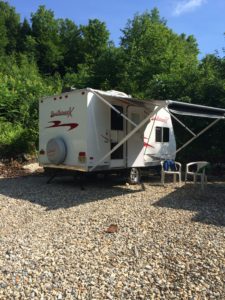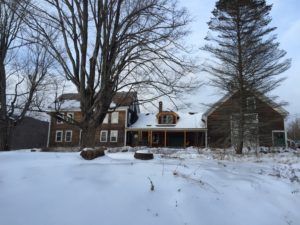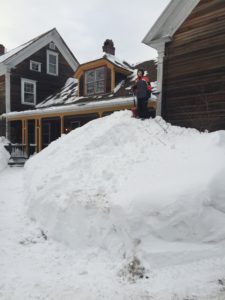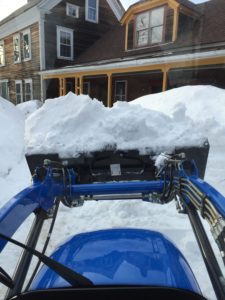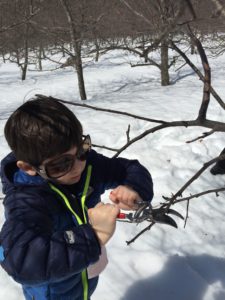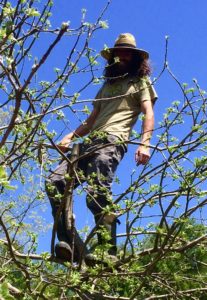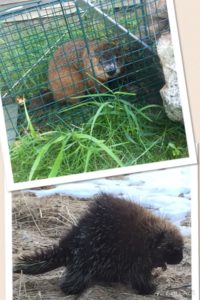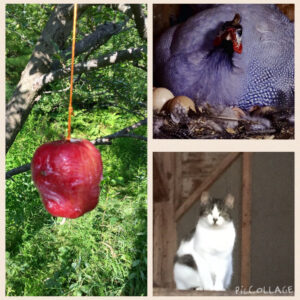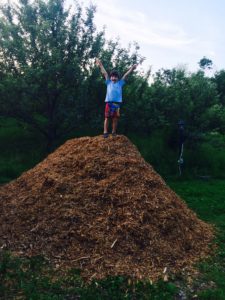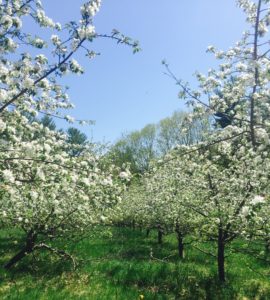Last week I shared the first part of our story that we told at Pecha Kucha in Biddeford and Kennebunkport this winter. In case you were wondering what happens in the second part of our story, here it is…
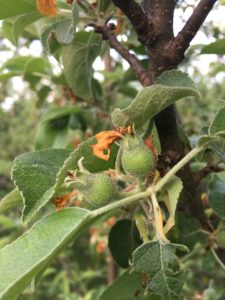 Blossoms gave way to fruitless and this is when it was game on. The year prior, we were told, there were not very many edible apples at the orchard. Holistic sprays that include neem oil, fish and seaweed emulsions aim at carefully balancing the microbiology of the soil while disrupting habitat for pests.
Blossoms gave way to fruitless and this is when it was game on. The year prior, we were told, there were not very many edible apples at the orchard. Holistic sprays that include neem oil, fish and seaweed emulsions aim at carefully balancing the microbiology of the soil while disrupting habitat for pests.
Another piece of equipment on the farm is this 1962 Massey Ferguson tractor that’s loaded up in the back with a 100 gallon Pak tank sprayer. It’s used to go through the orchard to apply the holistic feeds to the trees… And it makes for a pretty impressive morning commute!
At the heart of the holistic approach are the variety of wild flowers that feed and provide habitat for bees. The best part about the orchard being left neglected was the wild, natural permaculture that was left intact. Things like Clover, Milkweed, Black Eyed Susan, and Queens Anne Lace fix vital nutrients, like nitrogen back into the soil.
And from healthy soil, comes healthy fruit. In our first year, we stepped into a bumper crop year where apples were abundant everywhere. The trees were literally dripping with apples. But what I wasn’t prepared for was the flavors, our apples had so much flavor infused from the holistic feeding regimen. It was amazing.
The kids were so excited too. They wanted nothing more than to be a part of the action. Lifting them up with the neighbors’ kids to reach the tallest of the apples made their hearts soar. They were involved with picking, sorting and a little taste testing the different varieties of all the apples.
At the back of the barn we have a quaint farm store where we sort the fresh apples. Inside we hold tastings for people to become familiar with heirloom varieties such as Zabergau Reinette, Hudson’s Golden Gem, Black Oxford and two of my favorites, Vartanian Lightning and Golden Russet.
One of the best parts of apples is cider. We started making cider with an old fashioned press that we hooked up to a bicycle to turned the crusher. Once squeezed, pure liquid gold comes out. Natural, unfiltered and unpasteurized raw cider that is only available at the farm.
We had a hot beginning to the fall last year, but ended with a cold snap in October that caused us to bring in as many of our late season varieties that we could with some volunteer help before the prolonged frost affected them. Late season varieties, like Keepksakes, are among the best keeping apples for storing through the winter and into the spring.
Before winter, a final clean up of the orchard included going through with a scythe to cut down all the underbrush around the trees that would otherwise provide habitat for voles. Instead, we want to expose them as much as possible to their natural predators and keep the ecosystem in balance and our trees healthy.
This is the staff here at Eden Acres Family Farm. We feel truly blessed to be here and tasked with restoring one of the very few organic orchards in Maine or even in the country. We are looking to grow our orchard by offering an apple CSA this year and building a cider barn with high yielding equipment. Please come out and visit us this fall in East Waterboro.
